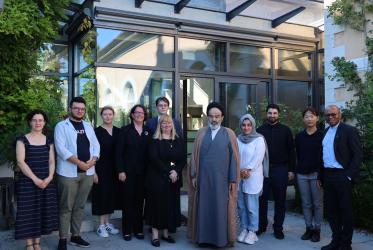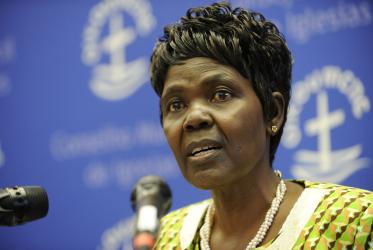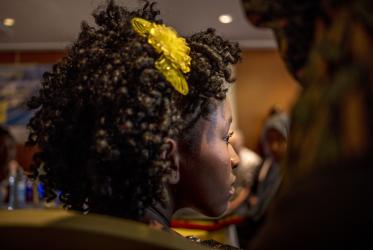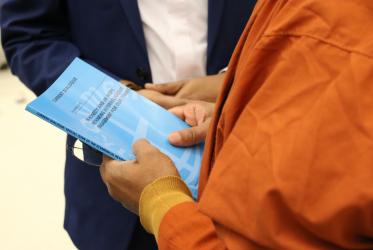Displaying 1 - 20 of 120
Applications open for upcoming Young Adults Training for Religious Amity
15 September 2022
Dr Abuom reflects on women of faith as healers of creation
05 October 2021
Freedom of religion rooted in justice
06 March 2020
Festivities and dialogue launch new WCC journal
07 February 2020
In Korea, young ‘stewards of hope’ forge ahead together
19 September 2019
















